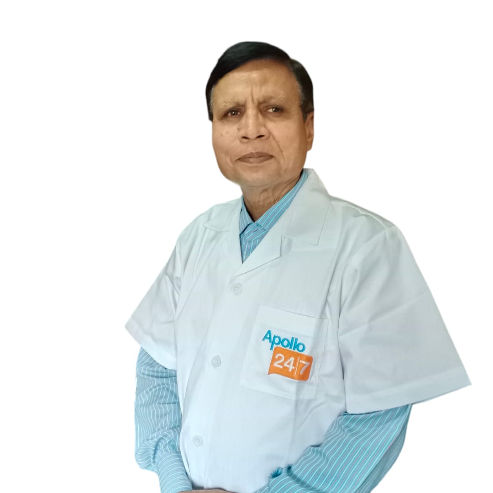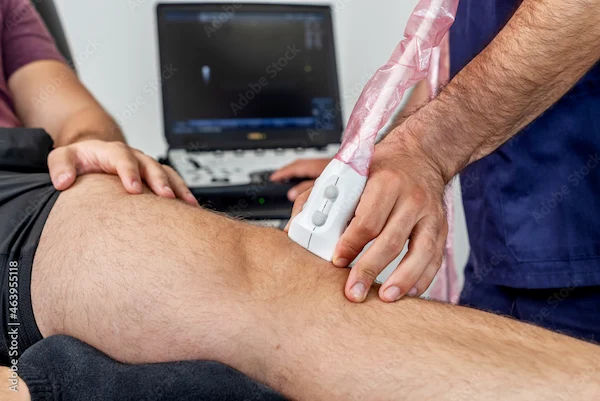Signs of Recovery from Spinal Cord Injury
Know about the signs of recovery from spinal cord injury, understanding it as early and late signs, factors that influence and tips to support the spinal cord injury.


Introduction
A spinal cord injury (SCI) can be a life-changing event, affecting mobility, sensation, and overall quality of life. However, recovery is possible, and recognising the signs of improvement can bring hope and motivation. Whether you're a patient or a caregiver, understanding these signs can help track progress and guide rehabilitation efforts.
Understanding Spinal Cord Injury Recovery
Recovery from SCI varies from person to person, depending on the severity of the injury (complete or incomplete), the location, and the individual’s overall health. While some people regain significant function, others may experience partial recovery. The healing process can take months or even years, but small improvements over time can make a big difference.
Early Signs of Recovery
In the initial weeks and months after injury, the body begins healing. Some early signs of recovery include:
1. Return of Sensation – Feeling light touch, pressure, or temperature changes in previously numb areas.
2. Muscle Twitches or Spasms – Small involuntary movements in paralysed muscles may indicate nerve reconnection.
3. Improved Reflexes – The return of reflexes (like knee-jerk reactions) suggests nerve activity.
4. Reduced Pain or Tingling – Some patients notice decreased neuropathic pain as nerves heal.
Later Signs of Progress
As rehabilitation continues, more noticeable improvements may appear:
1. Voluntary Muscle Movement – The ability to slightly move previously paralysed limbs, even if weak.
2. Better Bladder/Bowel Control – Increased awareness and control over bodily functions.
3. Improved Balance & Posture – Sitting or standing with less support.
4. Increased Strength & Coordination – Gradual improvement in hand grip, walking with assistance, or using mobility aids.
Consult a spinal cord specialist for the best advice
Factors That Influence Recovery
Several factors affect how much function can be regained:
Type of Injury – Incomplete injuries (where some nerve signals still pass through) have better recovery potential.
Early Treatment & Rehabilitation – Immediate medical care and consistent physical therapy improve outcomes.
Age & Overall Health – Younger patients and those without other medical conditions often recover faster.
Mental & Emotional Support – A positive mindset and strong support system play a crucial role.
How to Support Recovery?
While full recovery isn’t always possible, these steps can help maximise progress:
1. Follow a Structured Rehabilitation Plan
Work with physiotherapists to strengthen muscles and improve mobility.
Occupational therapy helps with daily tasks like dressing and eating.
2. Stay Active Within Limits
Gentle exercises (like water therapy or assisted walking) can prevent muscle atrophy.
Avoid overexertion, which can cause setbacks.
3. Eat a Nutrient-Rich Diet
Protein helps repair tissues, while vitamins (B12, D) support nerve health.
Stay hydrated to prevent urinary complications.
4. Monitor for Complications
Pressure sores, infections, and muscle stiffness can slow recovery—prevent them with proper care.
5. Mental & Emotional Well-being
Counselling or support groups can help cope with emotional challenges.
Celebrate small victories to stay motivated.
When to Seek Medical Advice
If you notice new movements, sensations, or changes in function, consult a doctor. They can assess whether these are signs of recovery or require further treatment.
Final Thoughts
Recovery from a spinal cord injury is often slow, but every small improvement matters. Stay patient, follow medical advice, and focus on achievable goals. With time, persistence, and the right support, many individuals regain meaningful function and lead fulfilling lives.
Consult a spinal cord specialist for the best advice
Consult a spinal cord specialist for the best advice

Dr. Anil Pradeep Jadhav
Orthopaedician
23 Years • MBBS MS (Ortho)
Nashik
Apollo Hospitals Nashik, Nashik
(25+ Patients)

Dr. Rupam Chowdhury
Orthopaedician
10 Years • MBBS, DNB (Ortho.)
Kolkata
MCR SUPER SPECIALITY POLY CLINIC & PATHOLOGY, Kolkata

Dr. Suraj Prakash
Orthopaedician
5 Years • MBBS, MS (Ortho)
Bengaluru
Apollo Clinic, Indiranagar, Bengaluru

Dr. Padam Singh Gautam
General Physician/ Internal Medicine Specialist
43 Years • M.B.B.S (WARDHA M. S.), F.A.G.E. (MANIPAL), F.A.I.M.S. (Pb.), M.A.I.M.S. (Pb.), M.R.S.H. (LONDON)
Noida
Dr Padam Singh Gautam Fracture Clinic, Noida

Dr. Susheel B
Orthopaedician
13 Years • MBBS, MS, Ortho Fellowship in Trauma ( Germany) Fellowship in Arthroscopy and Arthroplasty ( Switzerland)
Bengaluru
Apollo Medical Center, Marathahalli, Bengaluru




